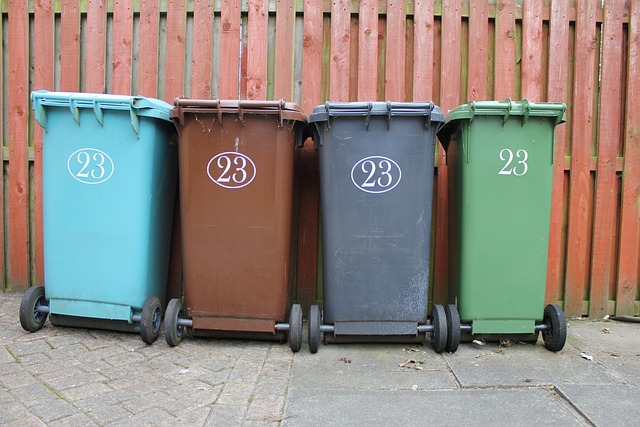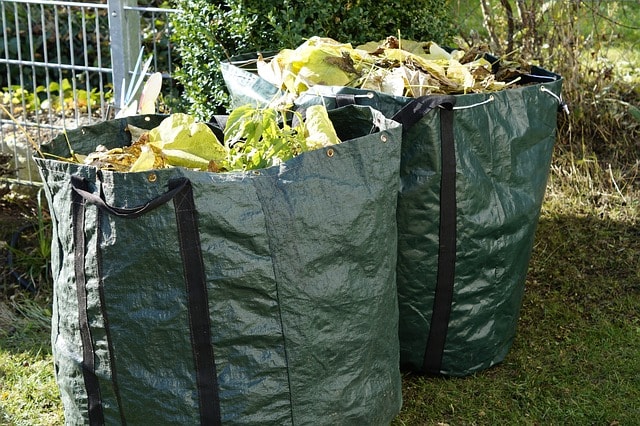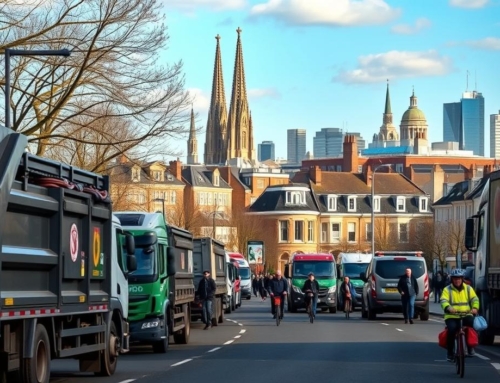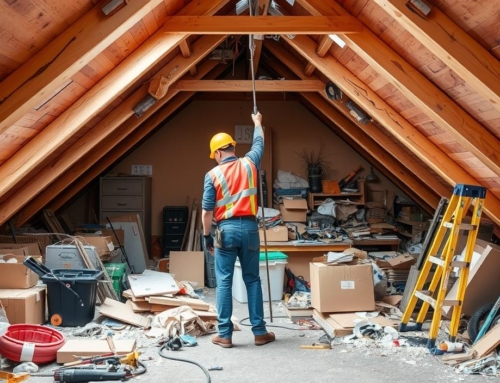Waste collection is a must for cleanliness and sustainability in both residential and commercial areas. Whether you’re decluttering your home or managing waste in a business, being prepared means a smooth and hassle-free process.
This guide will give you practical tips to prepare well and save you time, effort, and even money, while also helping you save money through efficient waste management.
1. Understanding Waste Collection
Waste collection is an essential service that plays a crucial role in maintaining public health, safety, and environmental sustainability. It involves the systematic collection, transportation, and disposal of waste materials from households, businesses, and institutions.
Effective waste removal requires a well-planned and executed strategy that takes into account the type and quantity of waste generated, the frequency of collection, and the disposal methods used.
Understanding the different types of waste is fundamental. General waste includes everyday items like packaging waste and non-recyclable materials. Recyclable materials, such as paper, plastics, and metals, can be processed at recycling facilities.

Hazardous waste, including paints, batteries, and chemicals, requires special handling. Garden waste consists of grass clippings, branches, and other green debris, while bulky waste includes large items like furniture and appliances.
Proper waste disposal is crucial for minimizing environmental impact and ensuring public health. By understanding the basics of waste collection, you can contribute to a cleaner and more sustainable environment.
2. Know the Types of Waste You Need to Throw Away
Waste comes in many forms and knowing the types of waste is the first step to proper disposal.
This includes:
- General waste: Packaging waste or non-recyclable materials.
- Recyclable materials: Paper, plastics and metals that can be processed at recycling facilities.
- Hazardous waste: Paints, batteries and chemicals that need special handling.
- Garden waste: Grass clippings, branches and other green debris from outdoor areas.
- Bulky waste: Furniture, mattresses or appliances that won’t fit in regular bins.
Reducing waste through sustainability initiatives is crucial for promoting a circular economy and environmental stewardship.
Sorting your waste into these categories means each item will be disposed of in the most eco-friendly way.
3. Waste Audit
Before you book a collection, assess the volume and type of waste you need to throw away. A waste audit will help you determine if you need special services like clinical waste or commercial waste and you won’t forget anything important.
4. Sort and Label Your Waste Properly
Proper sorting saves time during collection and maximizes recycling. Label bags and bins for food waste, recycling and hazardous materials. Use recycling bins provided by local authorities to comply with regulations.

5. Check Local Rules and Guidelines
Different areas have different rules for waste disposal. Check out the rules for items like car batteries or fly tipping which can result to fines if not handled properly. Compliance with rules also supports a circular economy by ensuring waste is diverted to the right facilities.
6. Your Responsibilities and Obligations
As a business or individual, you have a responsibility to manage your waste in a way that minimizes its impact on the environment and public health.
This includes ensuring that you comply with local waste management regulations, separating recyclable materials from non-recyclable waste, and disposing of hazardous waste in a safe and responsible manner.
Your duty of care means you must take all reasonable steps to ensure your waste is managed correctly. This includes using licensed waste carriers and keeping records of waste transfers. For businesses, this might also involve obtaining a waste carrier license if you transport waste as part of your operations.
Proper waste disposal is not just about compliance; it’s about being a responsible member of the community. By fulfilling your responsibilities, you help reduce waste, support recycling efforts, and protect the environment from the harmful effects of improper waste management.
7. Prepare Space for Waste Collection Services
Create a clear and accessible area for the collection vehicle to park and for waste to be collected. This is especially important for bulky items like sofas or office furniture. Enough space means a smooth operation, saves time and effort for you and the collectors.
8. Choose the Right Waste Management Provider
Choosing the right waste management companies is key to ensuring your waste is disposed of in an eco-friendly way. Look for providers that offer full waste disposal services including recycling and hazardous waste handling.
9. Waste Less and Save More
Before you book a collection, consider ways to reduce waste. Donate items that can be used, recycle wherever you can and compost garden waste.
Reducing the amount of waste collected can save you money, especially if you have a business generating a large amount of solid waste. Efficient waste management and composting not only contribute to sustainability but also help you save money.

10. Book at the Right Time
Schedule your collection according to your needs. Businesses can book collections during operational downtime to avoid disruptions. Knowing the collection routes also helps you prepare your waste in advance, no last minute hassles.
11. Safe Disposal of Hazardous Items
Items like old paint, clinical waste or chemicals need to be handled with care. Make sure your chosen service has the right equipment and expertise to dispose of such items properly. Improper handling not only puts risks but also harms the environment.
12. What to Expect on the Day of Collection
On the day of collection, you can expect a smooth and efficient process from your waste collection service provider.
Here’s what you can expect:
- The collection team will arrive at the agreed-upon time and conduct a waste assessment to plan the loading process.
- The team will load the waste onto the vehicle, handling all the heavy lifting.
- The team will clean up the area after loading the waste.
- The team will depart to dispose of the waste responsibly, in accordance with local regulations and environmental guidelines.
- You will receive a confirmation of collection and a receipt for your records.
By understanding what to expect on the day of collection, you can ensure a hassle-free experience and peace of mind knowing that your waste is being handled responsibly. This preparation helps make the entire process smooth and efficient, allowing you to focus on other important tasks.
13. Help Recycle and Go Green
By preparing your waste properly, you help increase London’s recycling rate and reduce carbon emissions. Separating recyclable materials helps the recycling process so waste is managed in the most eco-friendly way.
Why Proper Preparation Matters
- Environmental Impact: Proper preparation minimizes the environmental impact of waste by diverting waste from landfills.
- Cost Savings: Organized waste management saves you money and improves service for customers.
- Compliance: Following local authority rules avoids fines.
- Smooth Service: Ready to collect waste means a smoother process for everyone.
The Benefits of Efficient Waste Collection Preparation
Proper preparation for waste collection services means a clean, green and organized environment. By knowing the types of waste, following the rules and working with trusted providers, you can ensure your waste is disposed of in the most eco-friendly way.
Take these steps and make your next collection not just a chore but a step to a greener tomorrow. Whether you have household waste, commercial waste or special needs like hazardous waste, preparation is the key to effective waste management.
Let us help you make waste disposal simple and effective—contact us today for reliable, eco-friendly services tailored to your needs.






